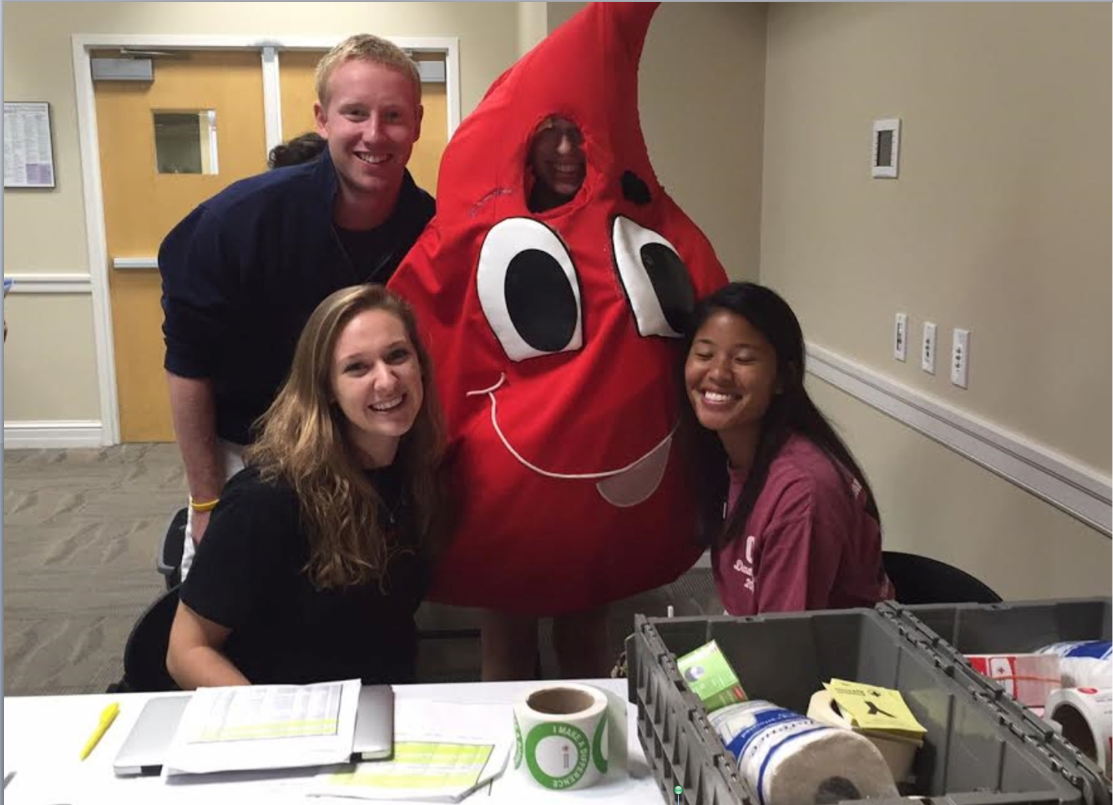
Blue Key and Cardinal Key, honor societies for upperclassmen, demonstrate how leaders direct others through serving them.
For more than 80 years, both Truman State University chapters of the national organizations have led with service that matches the focus on charity their mottos emphasize.
Cardinal Key is Service
“We strive to serve diversely, so we are both on campus and in the community,” senior Cardinal Key president Laura DeDecker says. “If anyone has an idea for service, we’ll do it.”
Cardinal Key members, in particular, uphold four defining virtues — fortitude, wisdom, trust and faith. DeDecker says each week Cardinal Key expects one of its current members to select one of the virtues and apply it to her life or say what it means to her in a “virtue spotlight.”
New members, in their sophomore year or older, need a minimum 3.25 GPA and 60 credit hours at Truman to qualify for the selection process, according to Cardinal Key’s website.
Over three nights of interviews, applicants answer questions gauging their openness, honesty and authenticity, DeDecker says. Cardinal Key is then able to fill the available spots of their capped 25 member quota.
“We want service to be something that you want to do,” DeDecker says. “You do it because you’re doing it with people you love and for a community that you care about.”
DeDecker says leadership can be defined by relying on others rather than just the leader.
“Cardinal Key is very, very far from an authoritative-type leadership,” DeDecker says. “It is never one person’s word—it’s collaborative.”
The women of Cardinal Key, as well as the men of Blue Key, regularly exemplify a collaborative and compassionate leadership, DeDecker says. Both organizations volunteer in events promoting fellowship, such as the blood drive and Homecoming.

DeDecker says Cardinal Key volunteers at both Mary Immaculate Catholic School and Head Start to mentor students to show how Cardinal Key has “a heart for service” that extends into the future.
“Being an academic is not as important as having a heart for service,” DeDecker says. “We rarely call it Cardinal Key Honor Society. It is Cardinal Key, and Cardinal Key is service.”
Blue Key Service Grows Leadership
Senior Connor Burton, Blue Key president, says he agrees with DeDecker’s assessment that Blue Key’s main goal is service.
“Our goal is that we’re very service-oriented,” Burton says. “It’s not uncommon, even though we only have so many guys, for us to go well over 1,000 service hours [total] in a semester.”
Other than recurring events like tutoring at Ray Miller Elementary School and volunteering at the Adair County Humane Society, Burton says their members partake in summer-long service projects.
Burton says Blue Key has its own set of desired qualities it wants its members to exhibit — leadership, service, scholarship and integrity or character.
New members must be at least a sophomore who meet a minimum 3.0 GPA and 45 credit hours, according to Blue Key’s website.
Burton says Blue Key then uses a stringent acceptance process taking place over three nights, in which candidates endure intimate interviews to fill one of the 29 open spots each year.
“We look for people to have these attributes, not to pretend or aspire to have them,” Burton says.
Burton says new members can expect tough questions intended to determine if they already have the four qualities, especially leadership, and how they prove it in their daily lives.
Burton says new members don’t always have good leadership qualities when they first join, but rather learn from experience in the organization. He says his own personal experience, as a president and executive in other organizations at Truman, reflects this idea.
“I have a pretty good list of examples of why I’m a leader, but interviewing for Blue Key, I didn’t consider that my strength,” Burton says. “Blue Key has helped me grow just being around the other guys that have been leaders.”
Homecoming for Leadership
Zach Lepperd, Homecoming committee co-director, says Blue Key and Cardinal Key partner with the committee for various festivities, including the parade. The Homecoming committee demonstrates leadership, Lepperd adds.
“Leadership, in general and in the Homecoming Committee, is really important,” Lepperd says. “We’re a group of 15 individuals who are putting on an event for the entire student body and really engaging 1,500 individuals in daily events.”
Lepperd says Blue Key typically finds vehicles for the parade route. They also coordinate the parade and reach out to the community, including the Kirksville High School and local businesses, to involve them in the festivities.
Lepperd says Cardinal Key works with the Office of Advancement, sets up for the 5K race, assist with the parade, participates in the pep rally and tailgate with the alumni.
“For me, approaching your leadership position in that you’re benefitting others and not exclusively yourself is a huge component of what it takes to be a leader,” Lepperd says.
The Psychology of Leadership
Psychology professor Yuna Ferguson says she believes caring for others is a good characteristic to be a leader, based on the concept of autonomy support.
“Autonomy support means that when you’re interacting with somebody, you respect them and value their opinions,” Ferguson says. “You allow them to make their own decisions—this is a good characteristic to have for a leader. Be somebody who supports others, validates them and not necessarily micromanage them.”
